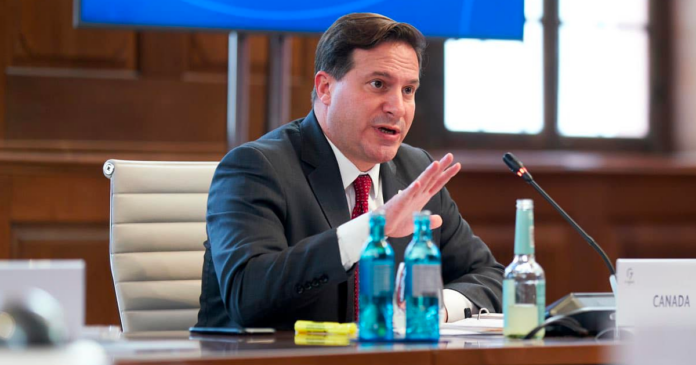After four provinces said they would not aid Ottawa in confiscating legally-acquired firearms, federal Public Safety Minister Marco Mendicino now says Ottawa is working with “potential” third parties to implement its gun buyback scheme.
In September, Alberta was the first province to oppose Mendicino’s request to aid the federal government’s confiscation program. It was followed promptly by Saskatchewan, Manitoba and New Brunswick.
Mendicino says Ottawa is looking at a “variety of options” to deliver the buyback program.
“We’re taking the time that is necessary to get it right,” he told The Canadian Press.
“It’s going to involve a number of critical stakeholders and partners, including law enforcement. But we’re also working with other levels of government. We’re working with industry leaders, we’re working with potential third parties. So we are exploring all of these options.”
In May 2020, Prime Minister Justin Trudeau announced he was banning more than 1,500 models of firearms, including guns explicitly used for sport shooting and hunting. The Parliamentary Budget Officer said the program will cost $750 million. Those costs could balloon to $1 billion once administrative fees are taken into account.
The buyback program would require firearms owners to sell their guns to the government or have them rendered inoperable at federal expense.
In October, police witnesses told the House of Commons Public Safety Committee that police services in Canada are operating at minimal levels already. The committee is studying Bill C-21, proposed legislation through which Trudeau’s order in council would become law.
Brian Sauvé, President of the National Police Federation, said policing services are having challenges retaining and attracting to the law enforcement profession.
“So every time that we increase the mandate of police officers on the street, there has to be something that gives,” Sauvé said.
Evan Bray, co-chair of the Special Purpose Committee on Firearms for the Canadian Association of Chiefs of Police, said the early part of the buyback program is an administrative process, not a policing issue.
“As a result, such a program could be managed by entities other than police services thereby allowing police resources to be focused on those who refuse to follow new law, and more importantly, on addressing border integrity smuggling and trafficking.”
In October, Mendicino said he was still focused on getting provinces’ help to enforce the gun grab program, saying that was part of his “plan A.”
“Advancing a fair buyback program that will compensate law-abiding gun owners for the assault-style rifles that they originally purchased lawfully is consistent with keeping our community safe, and we will always be collaborative with our provincial and territorial partners,” he said.
“My door will always be open to working with them in a wide variety of priorities to achieve that goal.”
